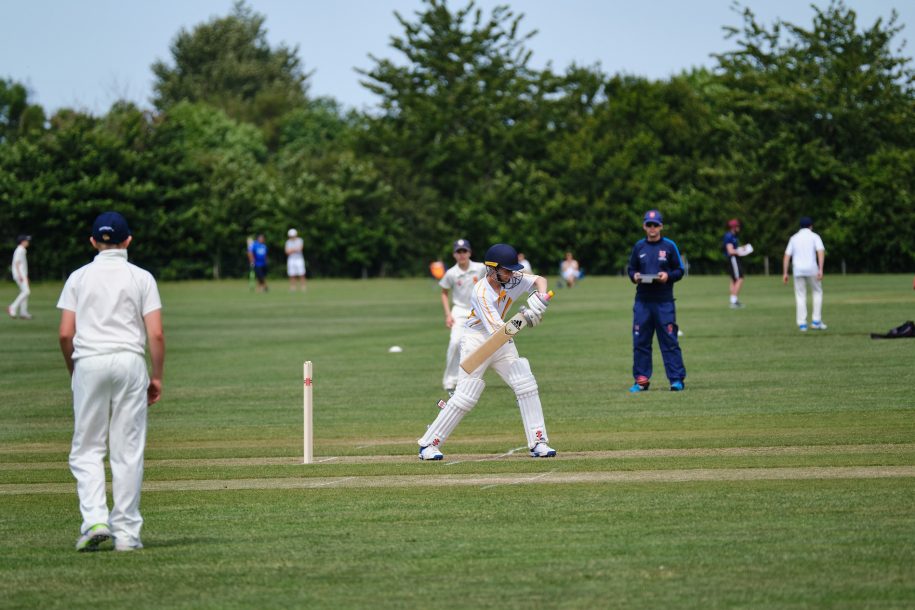Catching up

Catching up for lost Covid time
During the last few weeks, there has discussion in the media about what children need from their schools to help them ‘catch up’ from the disruption of Covid. We heard first that the sum of £1.4 billion had been provided by the Government to maintained schools to pay for extra tutoring for the nation’s pupils, only for the news story to then focus on the resignation of the ‘Education Recovery Tsar’, Sir Kevan Collins, in protest that his plans for a ten times larger financial stimulus had been rejected. Much mention was made of school plans for small group support for those worst affected, as well as extending the school day to facilitate extra lessons in place of after-school co-curricular clubs. Reading this emphasised to me that no two
schools are alike, and also that a majority of children were not fortunate enough to enjoy the quality of online teaching that we could provide, because when I think of what LGS boys have been missing, my conclusions are very different.
Naturally, we are fully aware that some boys found it much easier than others to keep on top of their academic work during lockdown, and I sense already from colleagues’ feedback that the recent school exams have been helpful in better identifying those who have significant knowledge gaps to fill. Nevertheless, we already have an established programme of subject surgeries that will, over the next year, help these boys to catch up on any lost time. This situation might be more acute in the youngest year groups. We know that the provision made for remote learning in primary schools varied significantly, and therefore it may well be necessary to make adjustments to our Year 7 curriculum, particularly in the core subjects of English and Mathematics. I think that such adjustments are likely to be required for two or three years until the national education system fully re-sets itself.
However, when I think of catching up on missed education, I focus much more on what our boys have missed in terms of friendships and opportunities. Many of our sons live for their hobbies, whether sport, music or drama and these activities which help to provide them with meaning have been cruelly taken away from them for a prolonged period. Therefore, one of our priorities at the Grammar School is to ensure that boys have both social time and the ability to collaborate in sport and the arts. It was so disappointing that Year 7 did not have the experience this year of performing in our major De Montfort Hall concert. This was precisely why these boys undertook a day of musical activities on Thursday in an attempt to provide a parallel experience.
Although an understandable decision, it was disappointing to learn at the beginning of the week that we faced a four-week delay to the lifting of the final Covid curbs. I had wanted to re-start school assemblies in person as I have hugely regretted that we have not been able to meet as an entire community for 15 months while we remain in our year-group ‘bubbles’. Both social and formal events help to pass down the LGS ethos to our younger pupils, and a focus of our new Prefect team will be to explore how that can be achieved. This will also be a priority of our Housemasters, as they take full responsibility for the development of a quarter of the school through our revised pastoral structures.
I remember attending a Heads’ Conference about five years ago on the subject of Artificial Intelligence where I was told that AI bots would replace teachers in the medium-term to deliver a truly personalised education. We were assured that this would be ‘superior’ to what we had done previously, as AI would be able to adapt its teaching to the needs of the individual learner – “Pupils wouldn’t have to actually physically attend school any more: learning would be so much more efficient communing with a computer” – Following 15 months of Covid education, this now sounds like a dystopian vision. At the Grammar School, we already knew (through the research of our Teaching and Learning Committee) how important teacher-pupil relationships are in promoting boys’ achievement and progress. These relationships are often best developed outside the classroom, through tutorial conversations, co-curricular activities and school trips. So when we think of catch-up, let’s not merely focus on worksheets and textbooks, but consider how we can help our young people to re-build their confidence through partaking in education in its broadest sense.
